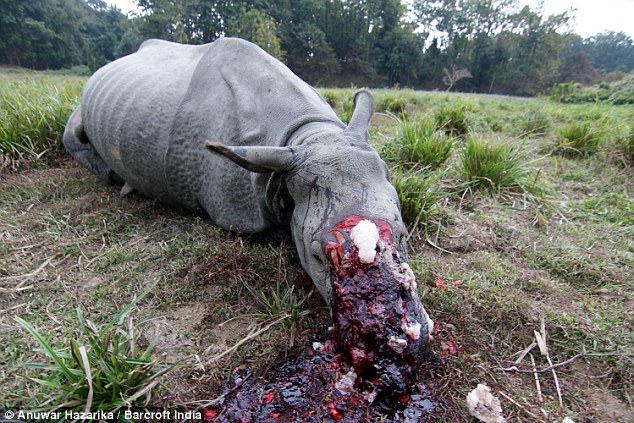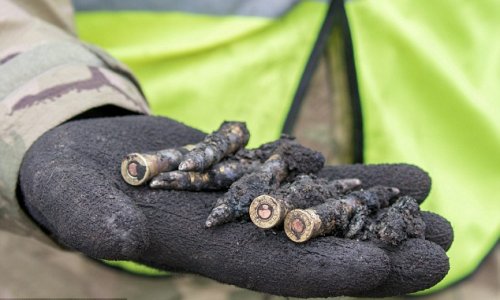The dismembered body of an endangered rhinoceros has been discovered in Kaziranga National Park in India.
As these images show, the male one-horned rhino was killed by poachers, who sawed off the animal's horn before escaping.
This comes just weeks after a female one-horned rhino was butchered for its horn and left to die in a pool of it's own blood in the same area of the national park.
The body of the rhino was discovered by forestry officials in the Burapahar range of Kaziranga in Assam, India, on Sunday.
'The staff did hear the sound of gunshots from the Burhapahar range and before the forest guards could extensively comb the area and spot the carcass, the poachers had sawed off the rhino’s horn and escaped from the scene,' a park official told local website IndiLeak.
Earlier this week, two poachers were killed in an encounter with park rangers in Kaziranga.
Park officials say five or six poachers had entered the park aiming to kill rhinos, and the rest of the group escaped.
Four weeks ago, on December 14, park rangers found another butchered one-horned rhino in the Burapahar range of Kaziranga.
Illegal rhinoceros horn poaching is one of the major environmental issues in the park, with animal body parts such as the toenails and skin having a high value on the Asian medicinal market.
The Indian rhinoceros, also known as the one-horned rhino, is listed as a vulnerable species. The mammal is mostly found in the Assam state and in protected areas of Nepal.
The one-horned rhino once ranged throughout the Indo-Gangetic Plain, but their numbers were greatly reduced by hunting.
However, more than 3,000 are still thought to live in the wild, of which more than 2,500 are believed to be in Assam alone.
There are five different species of rhinoceros, and all are threatened to some degree. Although poaching drastically reduced their numbers in the 1900s, numbers have steadily increased in recent years.
(dailymail.co.uk)
ANN.Az





Follow us !











